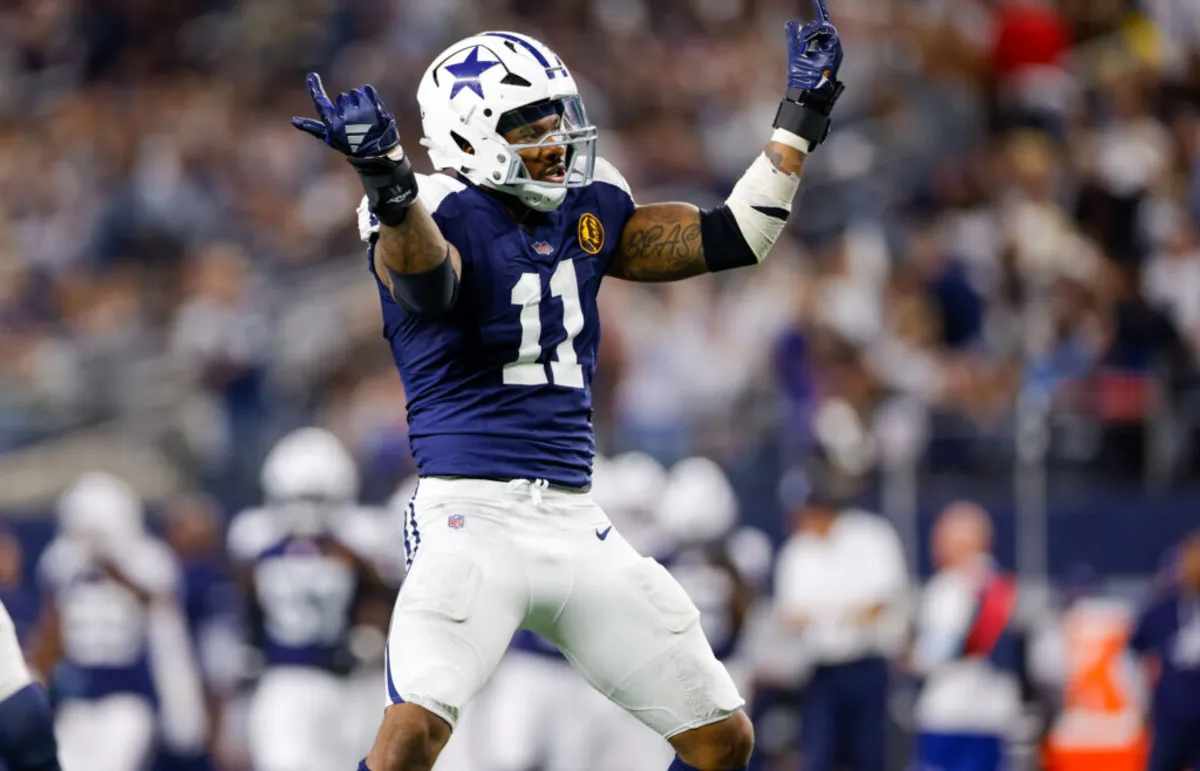
In mid-March, a pivotal meeting took place between Jerry Jones, the owner of the Dallas Cowboys, and Micah Parsons, the team's star pass rusher. Following this meeting, Jones was under the impression that they had reached an extension agreement. However, what was believed to be a handshake deal never materialized, ultimately leading to a surprising blockbuster trade with the Green Bay Packers just last week.
In the aftermath of that meeting, David Mulugheta, Parsons’ agent, revealed that he made multiple attempts to rekindle negotiations with the Cowboys organization. Despite these efforts, Jerry Jones reportedly maintained his stance on the supposed agreement and declined to re-enter discussions. “To expect somebody like Micah Parsons to be one of the best defenders in the NFL and also a great lawyer when it comes to contracts is a bit unfair,” Mulugheta remarked during his appearance on ESPN’s “First Take.” He emphasized that while Parsons focused on chasing quarterbacks, it was the agent's responsibility to pursue lucrative contracts on his behalf.
Mulugheta underscored that Micah Parsons always intended to remain a Cowboy. He noted that even amid the public standoff with the team, Parsons was prepared to take the field for Week 1 without a new contract. This made Jerry Jones' refusal to engage in further negotiations particularly frustrating for Parsons’ camp. “If you’re a then-25-year-old football player and your boss, who is the most powerful person in the NFL, starts discussing contracts, it’s challenging to end that conversation,” Mulugheta explained.
While there appeared to be minimal dialogue between the two parties, the Cowboys reportedly had a clear contract offer in place. Jerry Jones claimed they proposed a deal that would make Parsons the highest-paid non-quarterback in league history, with sources indicating the offer exceeded $150 million. However, the key difference between the Cowboys' standing offer and the four-year, $188 million contract Parsons ultimately accepted from the Packers was the length of the deal. Mulugheta pointed out that the Cowboys’ five-year proposal could have cost Parsons between $60 million to $70 million in potential future earnings.
There were also concerns that Jerry Jones might have been circumventing CBA (Collective Bargaining Agreement) rules by engaging in direct negotiations with Parsons. The interim leader of the NFL Players’ Association, David White, addressed the issue cautiously, indicating that they would enforce any provisions of the CBA if a violation was suspected. White stated, “We intend to enforce every provision of the collective bargaining agreement when we think there may be a violation,” emphasizing the importance of maintaining a constructive management-labor relationship.
Former NFL cornerback and Hall of Famer Darrelle Revis expressed a more direct criticism of the situation on social media, questioning whether Jerry Jones should be held accountable for the failed negotiations. Revis hinted that the NFLPA could consider filing a grievance against the Cowboys, though he acknowledged that any resulting fine would likely be minimal.
As the dust settles on this complex negotiation saga, it is clear that the dynamics between star players and team management continue to evolve. With Micah Parsons now set to play for the Green Bay Packers, the future of contract negotiations in the NFL remains a topic of significant interest.